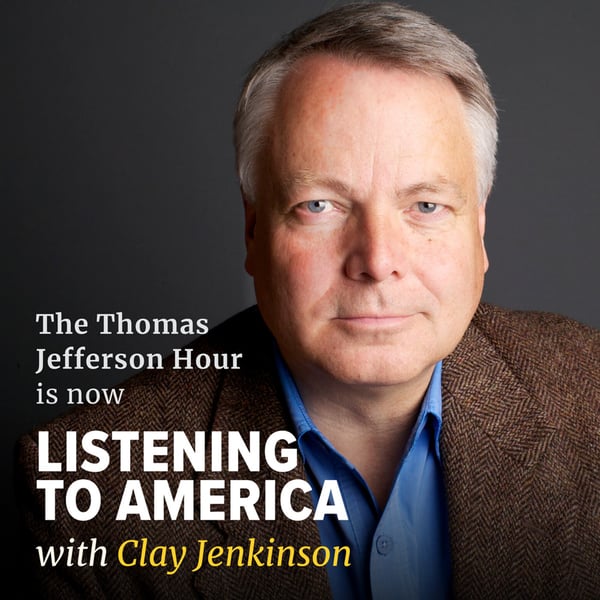#1575 Mind the Gap: Between Presidential Administrations
Listening to America
Listening to America
4.6 • 1.1K Ratings
🗓️ 27 November 2023
⏱️ 58 minutes
🧾️ Download transcript
Summary
This week, Clay Jenkinson’s conversation with guest host David Horton about three remarkable moments in American history between administrations. First, the tragedy of Meriwether Lewis, who got caught between the outgoing administration of his mentor Thomas Jefferson and the incoming administration of President James Madison, who was no admirer of Lewis. This gap contributed to the nervous collapse of Lewis and probably his suicide in 1809. Then the burden that fell on the shoulders of Vice President Harry S. Truman in April 1945 when FDR died at Warm Springs and Truman learned about the existence of the atomic bomb and the Manhattan Project for the first time that day. And finally, the assassination of John F. Kennedy on November 22, 1963, and Vice President Lyndon Johnson’s attempts to fulfill JFK’s agenda on Vietnam, civil rights, and the space program.
Transcript
Click on a timestamp to play from that location
| 0:00.0 | Hello, everyone, and welcome to this podcast introduction to this week's program. |
| 0:03.5 | You know, I've been thinking a lot lately about these interstices, a great word, |
| 0:09.3 | straight out of Samuel Johnson's dictionary. It means the gap. If you think of a tic-tac-toe, |
| 0:16.6 | what's between those lines are called the interstices. And so, when there's a gap |
| 0:24.1 | in the continuity of government, terrible things can happen, and some opportunities can happen, too. |
| 0:30.2 | And so, today we have, for example, one president creating bearziers, national wildlife refuge in |
| 0:37.6 | Utah, and then the next president, by executive order, reduces it by half. And then the next |
| 0:44.5 | president restores it. This is no way to operate government or think of the border. You know, |
| 0:51.1 | one one president signs executive orders that do such and such on the Mexican border. |
| 0:56.5 | The next president undoes this and goes in the other direction. |
| 1:00.6 | A, these are things that Congress should be doing. These are not presidential decisions |
| 1:05.8 | of things of that magnitude. Although the president does have the power under the antiquities act |
| 1:11.4 | to name by executive order, national monuments, but they were meant to be small, |
| 1:16.4 | not these gigantic ones that we're using these days. This is no way to run a government. I mean, |
| 1:22.3 | it's quite clear, but it is what it is. But I'm interested in what happened in three instances. |
| 1:29.3 | I was reading this new book about Harry S. Truman, the accidental president. |
| 1:35.9 | And I realized, again, that he was put in an almost impossible situation when he had to make |
| 1:41.9 | decisions about the use of the atomic bomb, having never even heard of it. |
| 1:47.1 | And until the day that his predecessor, Franklin Delano Roosevelt died at Warm Springs, April 12, |
| 1:55.2 | 1945, and an unfair thing that is for the world, for the Japanese, for the world, for the cold war, |
| 2:02.4 | for Harry Truman, for American GIs, to have someone who's not really ready to be the president, |
| 2:09.0 | have to take on those responsibilities, and the learning curve had to be so fast, so high. |
... |
Please login to see the full transcript.
Disclaimer: The podcast and artwork embedded on this page are from Listening to America, and are the property of its owner and not affiliated with or endorsed by Tapesearch.
Generated transcripts are the property of Listening to America and are distributed freely under the Fair Use doctrine. Transcripts generated by Tapesearch are not guaranteed to be accurate.
Copyright © Tapesearch 2025.

